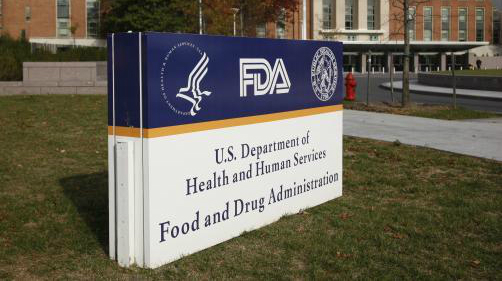FDA rejects Citius' revived IL-2 therapy for lymphoma

The FDA has rejected Citius Pharmaceuticals' marketing application for Lymphir, an updated version of a lymphoma therapy withdrawn from sale several years ago.
The US regulator's complete response letter (CRL) for Lymphir (denileukin diftitox) is unrelated to clinical efficacy or safety issues with the drug or its proposed prescribing information, said New Jersey-based Citius.
Instead, the decision stemmed from the need to incorporate "enhanced product testing" in the application, which had previously been agreed with the FDA. Citius chief executive Leonard Mazur said that the company intends to submit the required data and remains "fully engaged with the FDA as we continue to work toward approval."
Lymphir is a recombinant fusion protein that combines an IL-2 binding domain with diphtheria toxin fragments, designed to bind to and kill leukaemic cells. Citius is seeking approval in the US to treat patients with relapsed or refractory cutaneous T-cell lymphoma (CTCL) – a form of non-Hodgkin lymphoma – after at least one prior systemic therapy.
It is a reformulated and purified form of Eisai's Ontak, which was first approved by the FDA in 1999 and got a green light for the CTCL indication in 2008, only to be withdrawn from sale in 2014 as a result of manufacturing problems, including issues with the purity of the recombinant protein in the drug.
In 2016, Eisai licensed rights to the drug, including the reformulation, to the US subsidiary of Indian drugmaker Dr Reddy's Laboratories. Dr Reddy's, in turn, sold them on to Citius in 2021, with the exception of some Asian markets, including Japan, that were still held by Eisai, in return for $40 million upfront and $70 million in development and regulatory milestones.
A phase 3 trial showing results consistent with the earlier formulation was completed at the end of 2021, with an objective response rate of 36%, and a biologics license application in CTCL was filed in the third quarter of 2022.
Eisai secured Japanese approval for the new version under the Remitoro brand name in March 2021 for both CTCL and peripheral T-cell lymphoma (PTCL), based on a mid-stage study carried out in Japanese patients which showed a response rate of around 32% in patients with CTCL and 41% in PTCL.
Lymphir was granted orphan-drug designations from the FDA for PTCL in 2011 and CTCL in 2013. It is also in investigator-led studies in solid tumours in combination with Merck & Co's cancer immunotherapy Keytruda (pembrolizumab) and as a pre-treatment before lymphodepletion and CAR-T therapy for patients with B-cell lymphomas.
Citius has previously said that CTCL represents a market opportunity of around $300 to $400 million, with greater potential in PTCL and immuno-oncology indications.
Along with Lymphir, the biotech is also developing antibiotic therapy Mino-Lok for catheter- and central line-related bloodstream infections (CRBSI/CLABSI), with a phase 3 readout due shortly, and a topical formulation of halobetasol and lidocaine in phase 2b that is aiming to become the first FDA-approved therapy for haemorrhoids.












